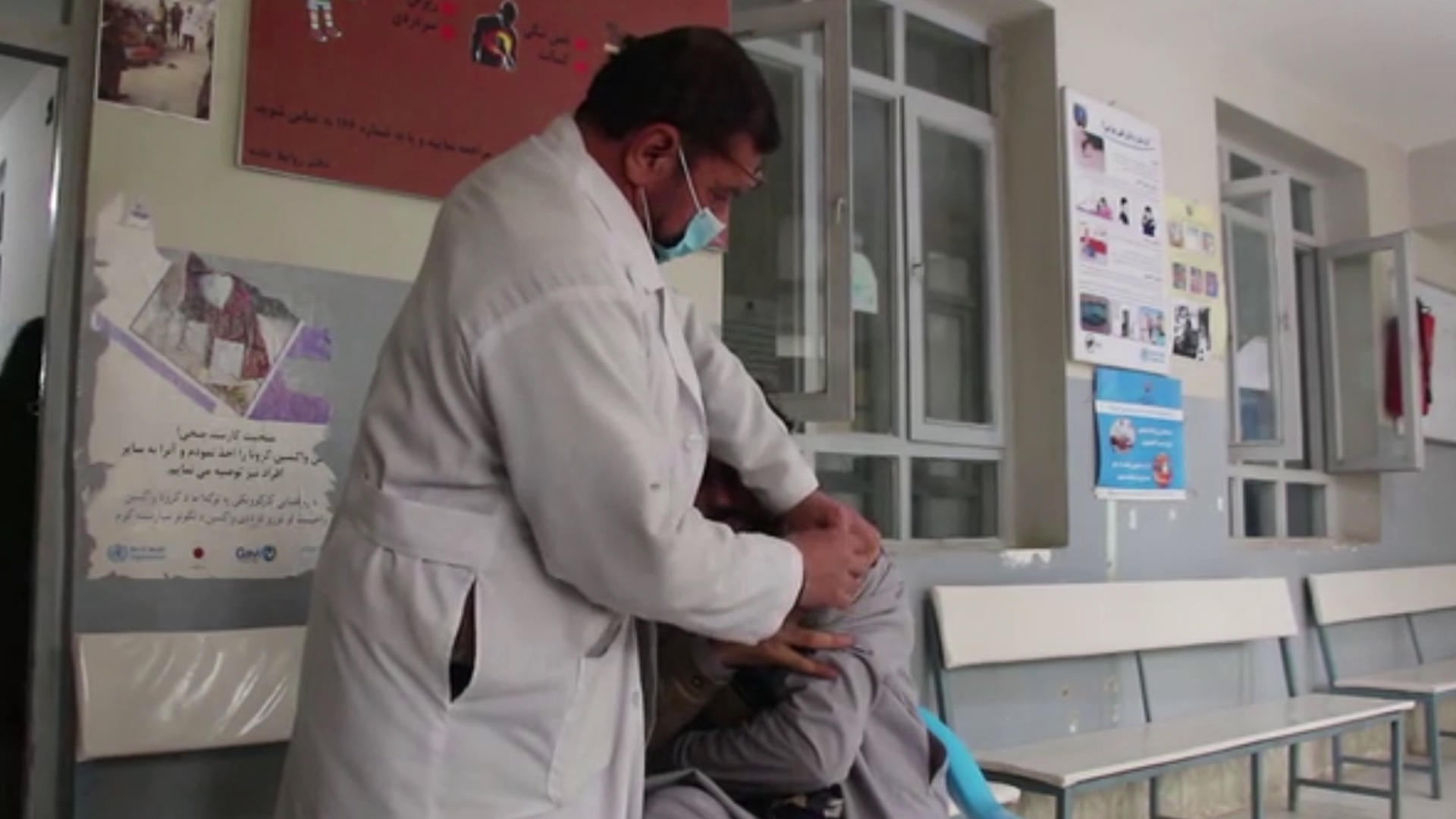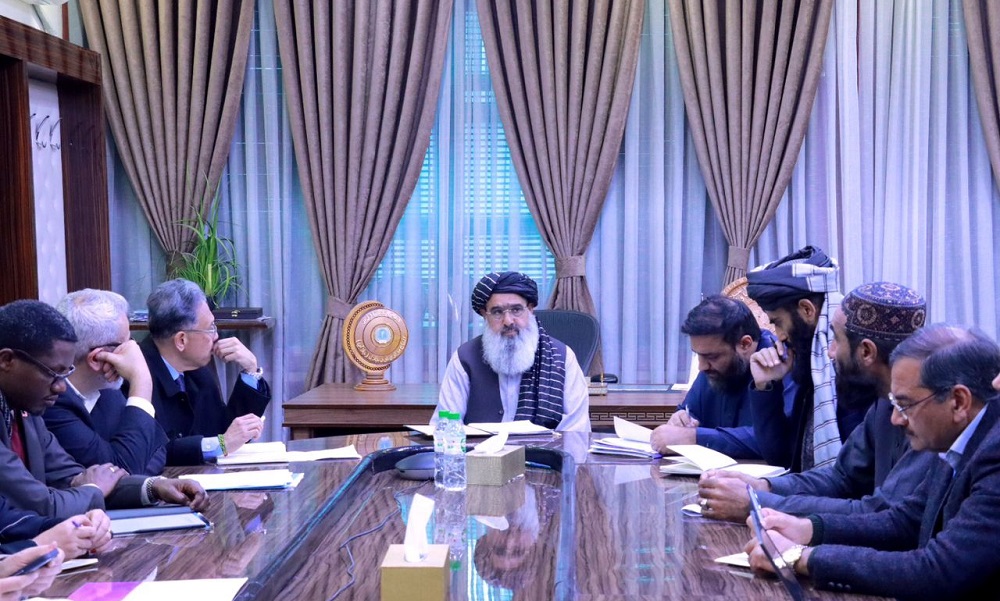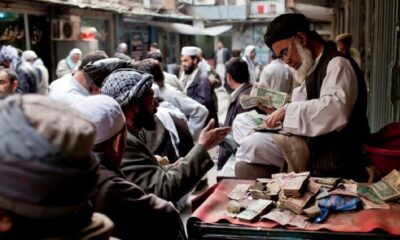Health
Kunduz steps up vaccine campaign, urges residents to get jabbed

Eighty thousand people in Kunduz have received the COVID-19 vaccine in the past six months, officials confirmed Friday.
Health officials in Kunduz province say that since the new government came in to power, 80,000 people in the provincial capital and districts have received the vaccine.
“More than 80,000 people received the vaccine in Kunduz. We call on the other compatriots to get the [COVID-19] vaccine,” said Qari Mohammad Anwar Bashir, head of Kunduz public health directorate.
“We have vaccinated more than 80,000 of the males and females [in Kunduz]. We have sites in the city and districts,” said Jamshid Sarwari, an official from Kunduz district hospital.
According to the officials, this shows an increase of 20 percent of vaccinations against the previous six months.
However, officials at the COVID-19 treatment hospital in Kunduz say that in the past three days, out of 175 corona specimens tested, 35 have been reported to have signs of a mutation or Omicron variant.
The director of public health in Kunduz also confirmed that more than 80,000 people have received the vaccine in the past six months.
He called on Kunduz residents to get vaccinated in order to prevent a fourth wave of the virus.
Meanwhile, vaccinators at the Kunduz District Hospital, are optimistic that people are willing to get vaccinated.
“More people are coming. People understand about the value of the vaccine. The people who received vaccines are safe and healthy,” said Sayed Mehran Hashimi, a vaccinator.
On the other hand, doctors at the COVID-19 Hospital in Kunduz report an increase in the number of positive cases in recent days, and say that the lack of diagnostic kits for mutations has made it difficult for them to diagnose the variant.
Health
India issues over 200 medical visas to Afghans in last four months

Since the launch of the new Afghan visa module in April 2025, more than 500 visas, including over 200 medical visas, have been issued in the last four months, Indian media reported citing a senior Health Ministry official on Thursday.
India has also approved and implemented several key healthcare infrastructure projects in Afghanistan, including the construction of five maternity and health clinics in the provinces of Paktia, Khost and Paktika, a 30-bed hospital in Kabul, and the construction or upgradation of major facilities such as an Oncology Centre, Trauma Centre, Diagnostic Centre and Thalassemia Centre in Kabul, The Hindu newspaper reported. Additional proposals for health sector support are currently under active consideration.
On Thursday, India reaffirmed its continued commitment to supporting Afghanistan’s health sector and humanitarian needs during a meeting held between Union Minister for Health and Family Welfare J.P. Nadda and Afghanistan’s Minister of Public Health Noor Jalal Jalali.
During the meeting, both sides reviewed ongoing health cooperation and discussed avenues to further strengthen collaboration in healthcare infrastructure, medical supplies and capacity building.
The Union Minister underlined that guided by India’s long-standing people-centric approach, Prime Minister Narendra Modi has always emphasised that India’s engagement with Afghanistan should remain focused on welfare, capacity building and access to critical healthcare services.
Nadda added that India’s assistance to Afghanistan remains guided by humanitarian considerations and the long-standing bonds between the peoples of the two countries.
“India has supplied 327 tonnes of medicines and vaccines to Afghanistan over the past four years. Cancer medicines and one CT scan machine, as requested by the Afghan Ministry of Public Health, are ready for dispatch and will be delivered by the end of this month. Proposals from the Afghan side for a radiotherapy machine and additional medical supplies are also being processed,” he said.
The meeting also discussed capacity-building initiatives. India is working on modalities to send a team of senior Indian doctors to Afghanistan to organise a medical camp and provide training to Afghan doctors.
“At the meeting, India has reiterated its commitment to providing free treatment in India to Afghan patients suffering from emergency and serious ailments, and to facilitating medical visas,” said an Indian Health Ministry official.
Health
Afghanistan seeks India’s support in standardizing traditional medicine
Health
Health ministry holds meeting with envoys of international organizations in Kabul

Noor Jalal Jalali, Minister of Public Health of Afghanistan, held a meeting in Kabul with representatives of the World Health Organization, UNICEF, the World Bank, the Asian Development Bank, the European Union, the UK Foreign, Commonwealth and Development Office (FCDO), and other international organizations.
According to the ministry’s statement, representatives of these international organizations discussed the delivery of health and development services, improving the management of aid and resources in the health sector, integrating health facilities and aligning them with the new policy, providing health services in accordance with the Ministry of Public Health’s policy, strengthening the immunization and vaccination sector, delivering services based on priorities, and ensuring sustained coordination.
During the meeting, Jalali stressed the need for transparency and attention to the ministry’s priorities in order to enhance the effectiveness and impact of health services. He added that the delivery of health services must be carried out in line with the ministry’s policy and through better management of existing international assistance.
Referring to vaccination campaigns, he stated that the recent measles and polio vaccination campaign had been implemented very successfully, and emphasized that necessary preparations should be made for upcoming campaigns.
He also provided information regarding the review of the BPHS and EPHS health packages and the establishment of a standardized system through technical committees.
In this meeting, Edwin Ceniza, the WHO Representative for Afghanistan, reaffirmed the organization’s continued cooperation with the Ministry of Public Health and expressed appreciation to the ministry’s leadership for their tireless efforts to improve the health system.
Representatives of these organizations pledged to maintain effective and sustained coordination and to provide their services within the country in accordance with the policies and principles of the Ministry of Public Health.
-

 Latest News4 days ago
Latest News4 days agoGermany speeds up admission of Afghans from Pakistan
-

 Sport4 days ago
Sport4 days agoIPL 2026 Auction set for Abu Dhabi with $28.6 million purse at stake
-

 Business5 days ago
Business5 days agoAfghan economy posts second year of growth despite deep structural challenges
-

 Latest News4 days ago
Latest News4 days agoAfghanistan to establish independent oil and gas authority
-

 Sport5 days ago
Sport5 days agoATN to broadcast ‘The Best FIFA Football Awards 2025’
-

 Latest News4 days ago
Latest News4 days agoUS intelligence chief warns of ‘direct threat’ from suspected terrorists inside the country
-

 Latest News3 days ago
Latest News3 days agoIEA supreme leader stresses enforcement of Sharia law and sincere public service
-

 International Sports4 days ago
International Sports4 days agoILT20: Desert Vipers qualify for playoffs with five-wicket win over Dubai Capitals


























